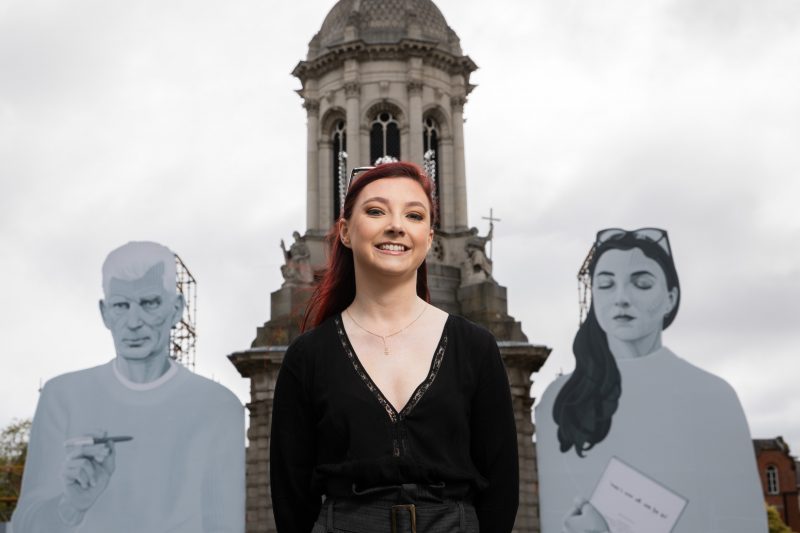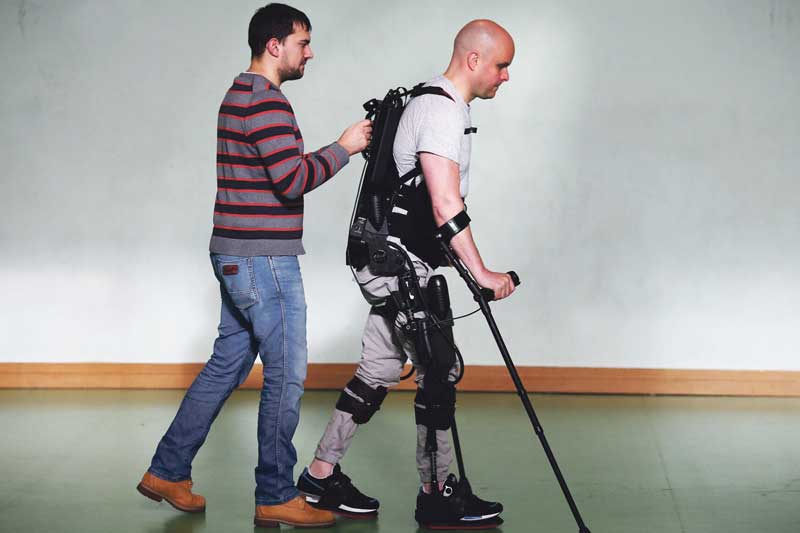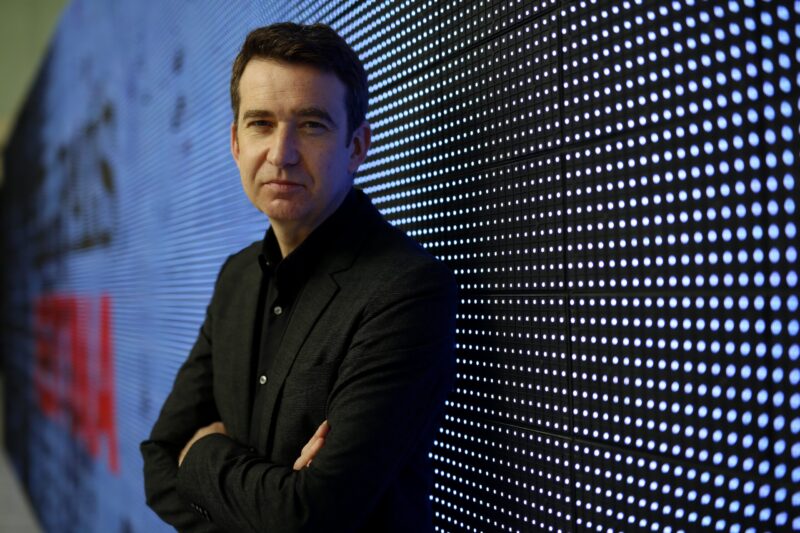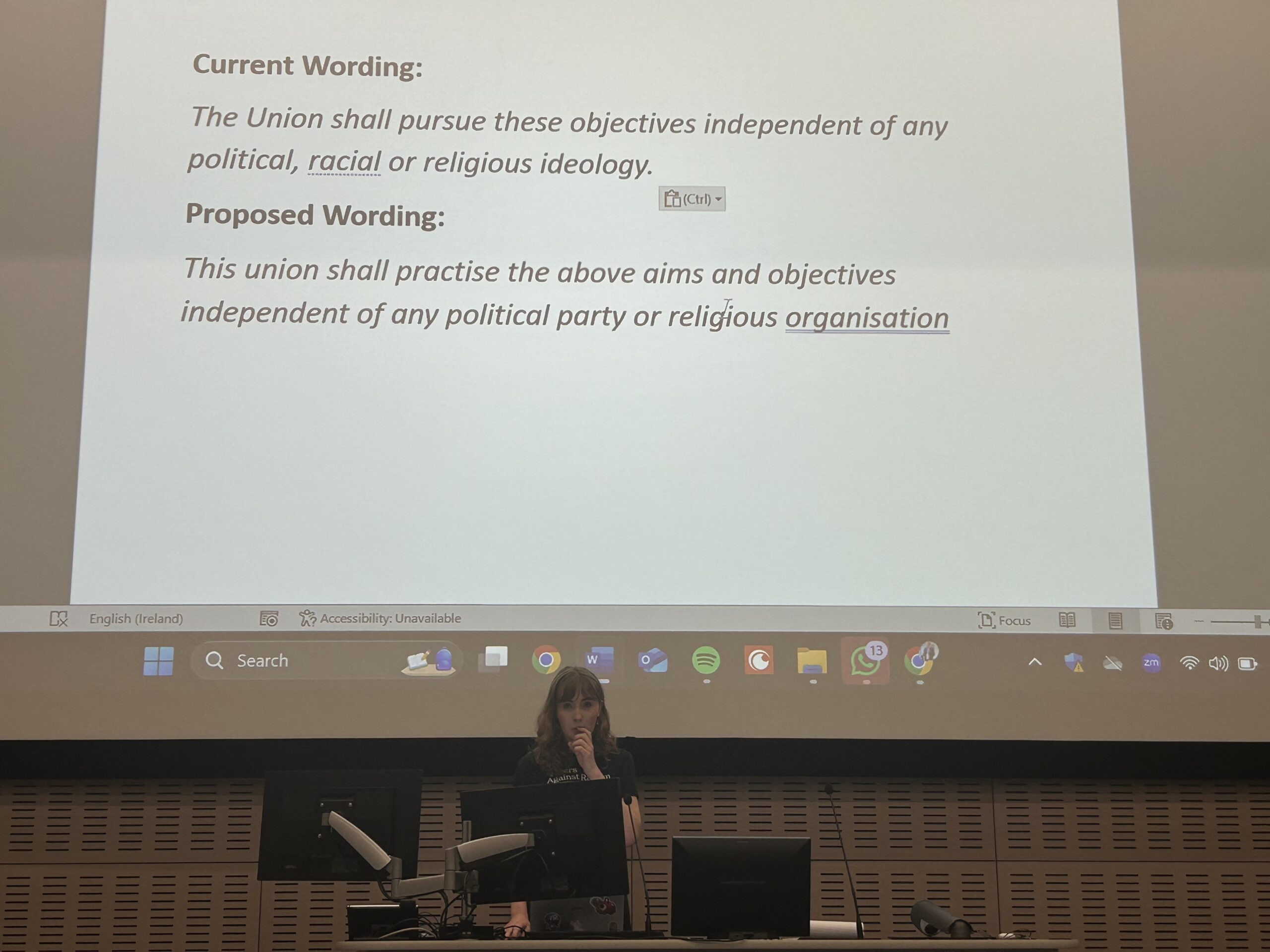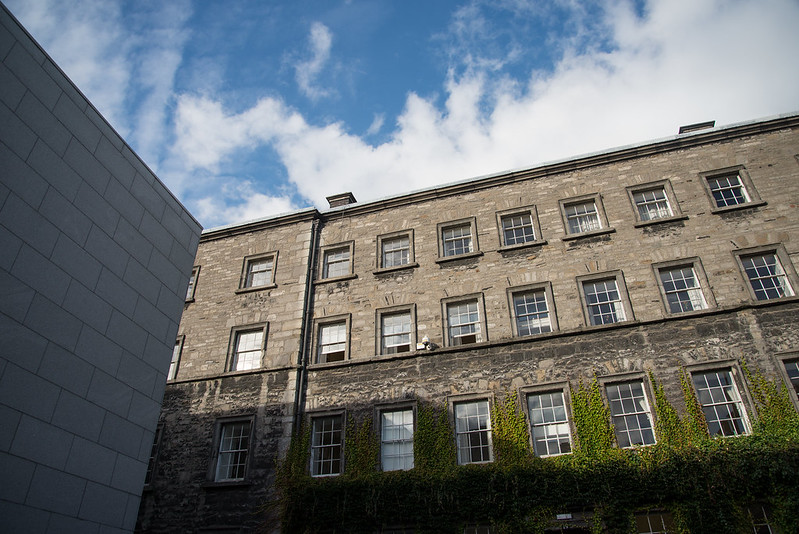When I asked Róisín Ní Haicéid, a musician, songwriter and final-year sociology and social policy student, what her first experience of coming through Front Gate was like, the first thing she said was: “It seems like yonks ago.”
Describing herself as “a little baby” coming in at the age of 17, Ní Haicéid recalls “being really nervous and really lost the whole time”.
The novelty of constantly being in town, even as someone born and bred in Dublin, was certainly not lost on the Phibsborough native. “[Being in town] every single day for a week was kind of crazy because in secondary school we’d go in on Wednesday and it would be a big deal to go into town.”
Ending up in Trinity was the furthest thing from Ní Haicéid’s mind however when she was in her leaving cert year. Having severe scoliosis and then Cauda Equina syndrome due to surgery, Ní Haicéid did not experience the typical start to college life. “I spent all of 6th year in the hospital. I was in hospital for like five months a year, which was not fun. I didn’t think I was going to go to college because I thought it would fail.”
Describing the turbulent time leading up to the leaving certificate, Ní Haicéid recalls: “I got discharged from hospital like the week before my Irish orals. I was cutting it so fine. Filling out my CAO, I was like: ‘Oh, this is just to put something down just in case.’”
Despite choosing her course amidst this ordeal, she’s happy with where it brought her. Speaking about her time studying sociology and social policy Ní Haicéid says: “[It’s] like those big, broad, trying to understand the world kind of subjects.” She remarks that if she had chosen social work, as she had initially considered, she thinks, “I would just be crying all the time. Like, I just want to take everyone into my house”.
In terms of engaging with society life in first year, Ní Haicéid says she “flung” herself into Trinity VDP which she found to be “amazing for finding [her] feet and because it’s so broad there was so many volunteering opportunities to choose from … it was exactly what I needed in first year”.
Then, one of the rods in Ní Haicéid’s spine broke, meaning she was forced to take the year out and had to get surgery. This saw her take “a good step away” from her volunteering. It was at this time that Ní Haicéid started developing her music, a step she describes as a “great thing to do at that point in time”.
Ní Haicéid implores first years to throw themselves into anything and everything as something will undoubtedly be surprising or interesting. She laughs recalling “going to a DUGES lecture on climate change and sexism. And I remember seeing that and being like: ‘I can’t even think of one way that they interact.’” Then after attending the lecture she had a moment of epiphany, where she thought: “Oh my god, this makes so much sense!”
Young students often believe themselves to be the next best thing, dipping their forks in all the pies trying to find something that will stick for them. And while Ní Haicéid is certainly a talented musician with her band Banríon, she is no different from the rest of us who have stories of failure we’d rather not tell. “I really wanted to be good at acting, but I’m just not, and now I know that at the age of 22, I’ve completely accepted that. But [in first year] I auditioned for two Players’ plays. And I didn’t get into either of them. And then I was so upset that I went to both the plays and I sat there and I was like I would have it would have been amazing. I wouldn’t [have], I would have been terrible.”
But despite the pangs of jealousy, Ní Haicéid encourages first years to go things by themselves, as she had “really good, but really weird little times like that”.
“That’s how I found so many of my friends. [Going] to things by yourself and not being afraid to do that and just talk to people because everyone is in the same boat.”
Ní Haicéid acknowledges that there are a lot of people from different backgrounds in Trinity. Having gone to a public school in Clontarf she says bemusedly that this was “the first time apart from the Gaeltacht that I met southsiders”. In a more serious tone, she continued “it was the first time that I met people who had generational wealth and had notions about people who didn’t have generational wealth”.
Sometimes, encounters with this group of people left Ní Haicéid very uncomfortable. “I have a very neutral North Dublin accent. I remember people in first year saying that I talk ‘common’ and stuff. Or they’d come over to my house and they’d say, ‘oh, Phibsborough was actually really nice.’” For incoming first years and current students alike, Ní Haicéid consoles that despite these experiences, “a real minority of Trinity are like that”.
When I ask her to give advice to her fresher self, Ní Haicéid says “I’d tell myself to take it easy”. “My own health had fallen apart. And I definitely should not have gone to college when I did. I was so sick. I think just the fact that I got in, I was kind of like, ah, I gotta do it straight away. And I just had this linear idea about finishing school and you go into college, and you do three or four years, and then you finish and get a big boy job. But like, here I am now at 22.”
Determined to finally go to the largest private party in Europe, Ní Haicéid’s final piece of advice is “go to Trinity Ball”. Deadset on winning Battle of the Bands this year, Ní Haicéid dreams of getting “one last chance” to either perform or attend. So maybe we’ll see Banríon on the Trinity Ball line-up this year.
If anything, Ní Haicéid’s joyous and optimistic outlook on life is to be admired. The choices she made throughout college from first year have certainly helped shape her into who she is today, and her ability to constantly find something new or take new opportunities is essential to her character. If there’s any takeaway from this conversation for first years, in Ní Haicéid’s words, whatever it is, “do it, there’s no harm”.


